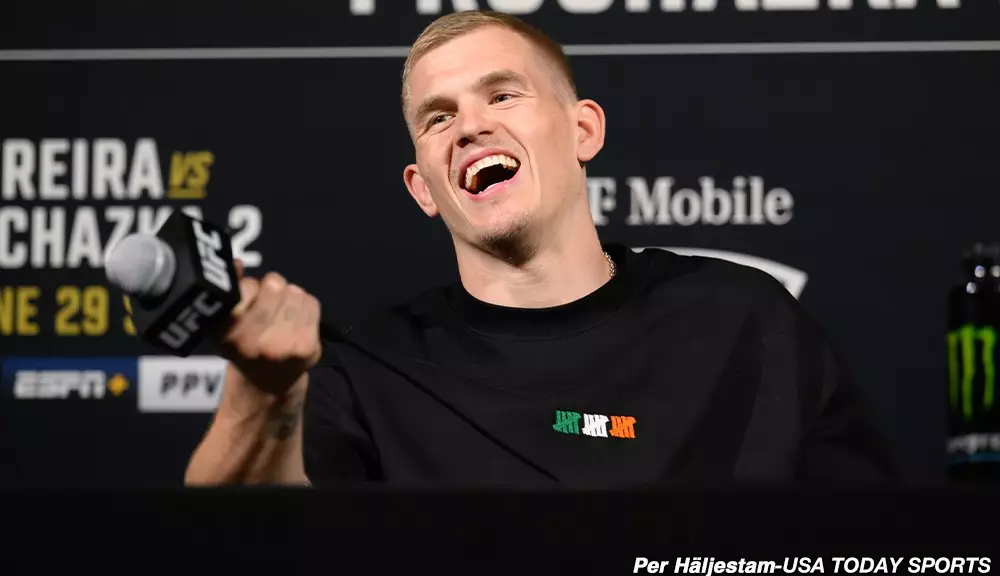The world of mixed martial arts is not only defined by physical prowess but also by the intricate dance of matchmaking and fighter dynamics. The latest narrative surrounding Ian Machado Garry, an undefeated fighter holding an impressive 18-0 record in mixed martial arts, showcases the complexities inherent in this sport. Machado Garry has publicly asserted that former welterweight champion Kamaru Usman declined a fight with him, indicating a growing trend of fighters being selective about their opponents as they approach the latter stages of their careers.
Initially, Machado Garry set his sights on securing a bout with Colby Covington, another prominent figure in the welterweight division. This ambition had to shift dramatically when fellow fighter Shavkat Rakhmonov lost a title shot opportunity. In the wake of this development, Garry was booked to fight Joaquin Buckley on December 14 in Tampa at UFC on ESPN 63. However, with Rakhmonov’s setback, it created a surprising opening for Garry to step into a crucial co-main event, revealing the unpredictability of fighter planning amidst a competitive landscape.
According to Garry, discussions around a potential clash with Usman were stalled, with the fighter reporting that UFC officials suggested Usman was unwilling to engage him in the octagon. Machado Garry’s claims were reinforced during an appearance on “The Ariel Helwani Show,” expressing his frustration that Usman seemed to be dodging potential matchups with younger fighters like himself. Garry remarked, “The words I heard from UFC were, ‘Kamaru Usman wants nothing to do with you.’” This statement captures a sentiment within the UFC that some fighters are strategically curating their matchups, possibly inhibiting fresh competition.
Garry further lowered the gloves, taking personal aim at Usman’s character in the sport. He claimed, “Usman has a big chest and little balls,” a provocative statement hinting at a perceived lack of courage or willingness to face newer challengers. Such rhetoric provides insight into the psychology of fighters who are eager to prove themselves against established names. The underlying narrative here extends beyond mere bravado; it reflects a growing frustration among younger fighters who feel sidelined by elder competitors who are likely more concerned with preserving their legacies rather than facing the risks of an encounter with rising talent.
As the dynamic continues to evolve within UFC’s welterweight division, one must consider the implications of strategic matchmaking on the growth of the sport. Fighters like Usman and Covington might be opting for fights they regard as more favorable or less risky, effectively shaping their legacies while potentially stifling the emergence of fresh contenders. Interestingly, Garry predicts that Usman may push for a fight with Jack Della Maddalena, aligning with the belief that established fighters seek advantageous stylistic pairings rather than challenging matches that could threaten their status.
The intricacies of matchmaking in the UFC reveal a complex interplay of ambition, strategy, and personal career trajectories. Ian Machado Garry, with his fiery declarations, not only highlights his aspirations but also sheds light on the behaviors and motivations influencing fighter interactions in the octagon. The sport must navigate these evolving narratives to ensure an entertaining and fair competitive environment.

